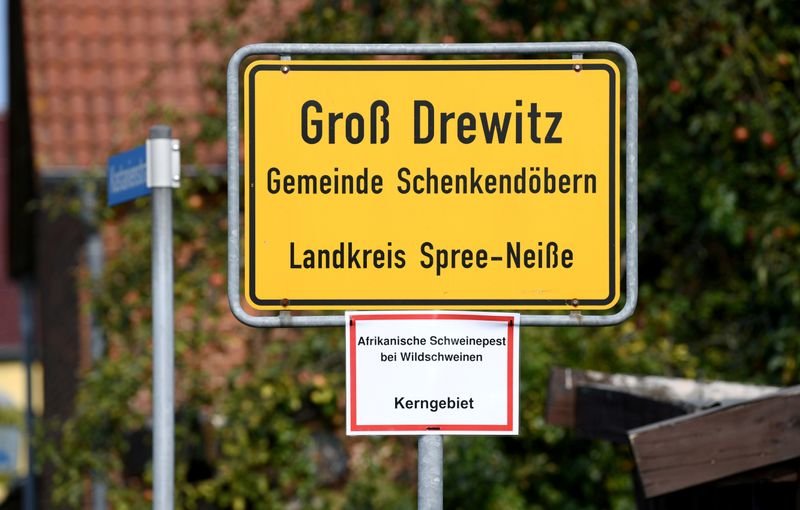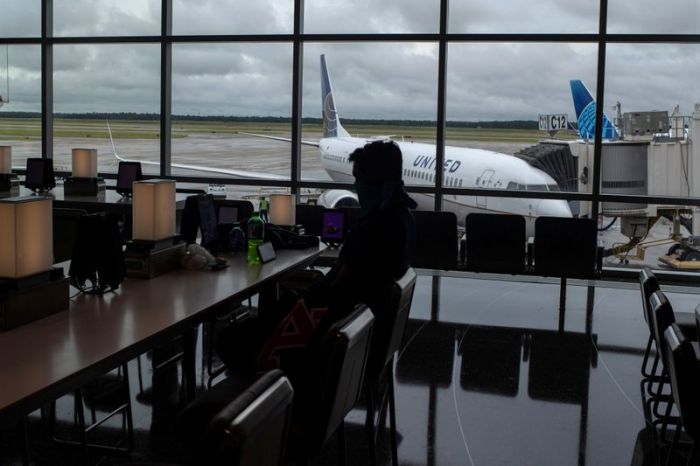HAMBURG (Reuters) – Two more cases of African swine fever (ASF) have been confirmed in wild boars in the eastern German state of Brandenburg, with one found outside the area of the first discoveries, the federal agriculture ministry said on Wednesday.
One new discovery was confirmed in the Maerkisch-Oderland district in Brandenburg outside of the area further south where the first cases were found, the ministry said. The sites are about 60 kilometres apart.
The second case was inside the original area, it added.
“The state of Brandenburg must now undertake an appropriate adaptation of the existing protection zones and protection measures to prevent a further expansion of the disease,” the ministry said.
The Brandenburg state government said the case in Maerkisch-Oderland involved a wild boar shot by a hunter close to the Polish border. The site of the find will now be closed off with a 20 kilometre long electrified fence.
The incidents are being regarded as separate outbreaks, said Brandenburg state health minister Ursula Nonnemacher.
Brandenburg late last year built temporary fences along the border in an attempt to prevent wild boars entering the country from Poland, where the disease is common in wild animals.
“In west Poland the infection rate is highly dynamic,” Nonnemacher said, adding that a more permanent anti-boar fence is now needed along the border.
The new discoveries bring total confirmed cases to 38 since the first on Sept. 10. All were in wild animals with no farm pigs affected, the federal ministry said. More wild boar cases have must be expected as the disease is highly infectious, it said.
China and other pork buyers banned imports of German pork in September after the first case was confirmed.
The disease is not dangerous to humans but is fatal to pigs and a massive outbreak in China, the world’s biggest pork producer, led to massive changes in global pork trade flows.
(Reporting by Michael Hogan; Editing by Andrew Heavens, Mark Potter and Louise Heavens)

























